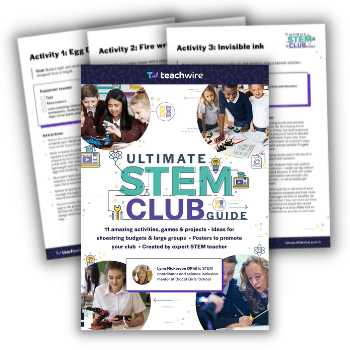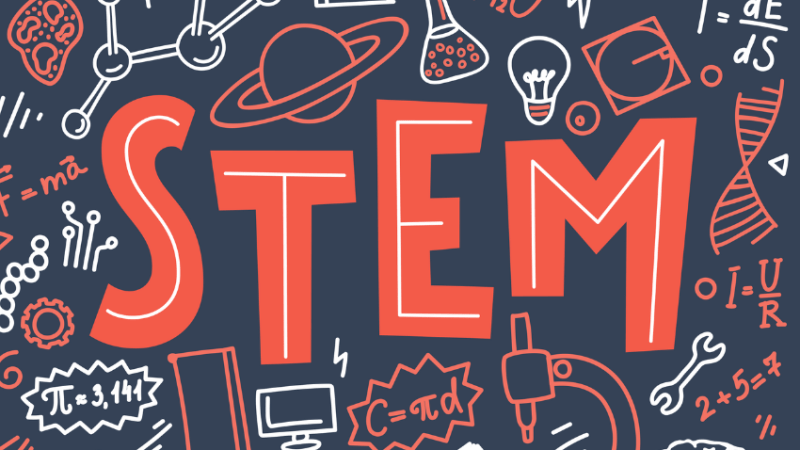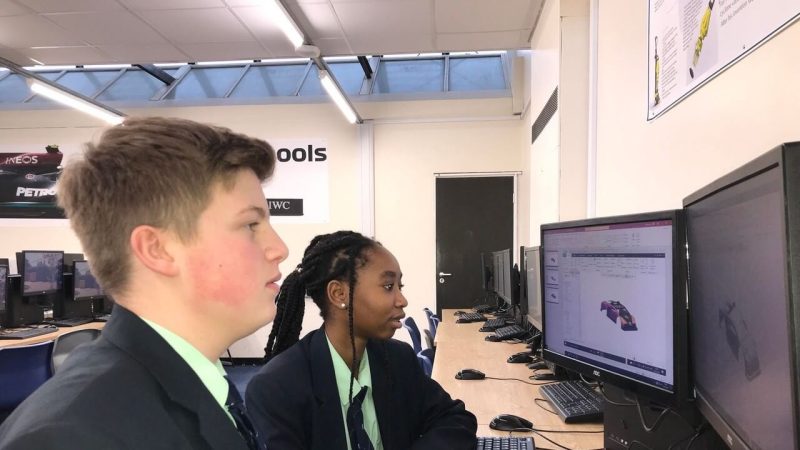Research skills will help students in every subject – especially STEM

Teaching young people how to be confident researchers can set them up for success in virtually any field, but especially those falling within STEM subjects, says Fiona Dyer…

- by Fiona Dyer

Most students will be very familiar with research-based tasks, simply from spending time in the classroom.
Often set as homework or for coursework aimed at helping them discover gems of information for themselves, many students may not appreciate how, in setting them such tasks, their teachers are setting them up for future success in the workplace.
The ability to effectively research is a vital skill for young people entering the world of work, whether it be preparing for job applications and interviews, generating statistics or pursuing one of the many career paths in engineering, such as electrical or chemical engineering.
But let’s be honest, no matter how useful a skill it is, young people can find research tasks to be a bit, well, dull.
If, however, you set research tasks based on real-world problems that students can relate to – from food waste and technological change to solar power – you’ll be providing a platform for them to engage with issues they are passionate about while in a way that can significantly boost their research skills.
Scenario-based learning
This scenario-based learning is fundamental to The Bright Ideas Challenge – Shell’s free national schools’ competition for 11- to 14-year-olds.
The competition invites students to demonstrate their creativity, their STEM knowledge and, critically, their research skills in creating innovative solutions to various sustainability issues that cities will be facing by 2050.
The learning objectives of the Bright Ideas Challenge are mapped to careers frameworks in England, Scotland and Wales to help students develop vital employability skills.
Teachers across the UK have in turn been able to use the important and topical issues raised by the competition to inspire students to pursue careers in science and engineering and further develop their STEM research skills.
The not-for-profit careers organisation EngineeringUK recently found that just 55% of adults realised that engineers work in the fields of research and development.
As the Tomorrow’s Engineers programme puts it, between now and 2024 “Around 2.5 million jobs requiring science, engineering, technology and research skills will need filling.”
The engineering sector is thus going to need candidates who have good research skills, while those able to combine such skills with technical ability and creativity will be especially well-placed to access the exciting career opportunities the sector has to offer.
STEM research skills are essential for numerous teams at Shell, a prime example being our Scenarios team, whose role is to consider the energy challenges that cities of the future may face – just like those students taking part in The Bright Ideas Challenge.
The job of Shell’s Scenarios team is to describe possible visions of the future, and identify how cities can be made more sustainable in a way that can help inform the company’s decisions.
The power of ‘What if…?’
Shell Scenarios will regularly pose ‘What if…?’ questions that encourage leaders to stretch their thinking and carefully consider events that are presently only remote possibilities. The scenarios in question are based on research into 500 sites, possible assumptions and quantification.
Trending
To that end, The Bright Ideas Challenge is a fantastic opportunity for teachers to set their students a task that mirrors those found in the modern workplace.
There are plenty of ways in which teachers help students develop their STEM research skills, including attending national events such as The Big Bang Fair or getting involved with Tomorrow’s Engineers Week.
Entering The Bright Ideas Challenge is one avenue among many through which teachers can set research-projects themed around relevant STEM issues, while making use of curriculum-led resources that facilitate learning.
Beyond the research-based learning objectives, the competition’s judging criteria will also require teams to demonstrate ‘solid STEM research’ if they’re to score well.
One of last year’s judges noted that “It was really enjoyable to see how teams used research to inform detailed bright ideas. I was impressed with the many innovative ways in which teams communicated these and justified them with scientifically-based reasoning.”
Finding a theme
The difficult part of starting a research project can often be choosing a theme that students will find both challenging and engaging. Renewable energy is a theme that students have often tackled when entering The Bright Ideas Challenge, as it’s a broad issue that allows students in the same class to look at different aspects of sustainability without overlapping.
2019’s national champions focused their Bright Idea around a renewable energy solution they named ‘Aqua Bine’, which was designed to capture the hydropower produced by household taps, store it as energy and use it to power anything from personal devices to cars.
Other key renewable topics worth researching might include solar power, tidal energy, affordable energy, future forms of power generation, how we should approach our future energy mix, ways of reducing greenhouse gas emissions, wind turbines and geothermal energy.
How to enter
As well as helping to develop your students’ STEM education and contributing towards your careers strategy, The Bright Ideas Challenge offers a total prize pool of £45,000, including up to £5,000 to boost your school’s STEM offering.
Also up for grabs is a fully-funded, once-in-a-lifetime VIP STEM experience, which takes in an expert-led prototyping session where students can bring their ideas to life.
So how can teachers get their class started on the competition and begin setting STEM research activities? Teachers and classes can begin the process of entering by downloading the Research Navigation Guide, which explains simply and clearly how teachers can deliver the competition across different time frames and settings.
Further details on how to enter can be found at bit.ly/shell-bright-ideas; The deadline for entries is 5pm on Friday 24th April 2020.
Student checklist
- Plan what you’re going to search for in advance to make most effective use of your time
- Consult textbooks and use the school library, as well as the internet for your research
- Assess all information sources for reliability, bias and how up to date they are
- Try to draw on primary sources, such as interviews and scientific data gathered from experiments
Fiona Dyer is UK Education Lead at Shell. Read more about women in STEM.







